Most people choose to drink tea for its health benefits, but drinking the wrong tea will not achieve the goal of health preservation.
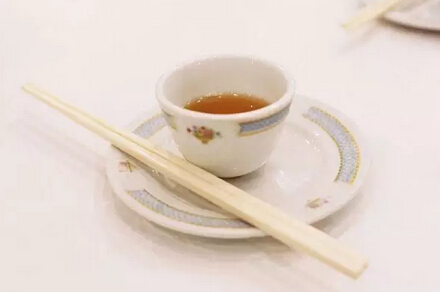
Tea can promote health, but only if you choose and drink the right tea. Some might say: 'Do I need to consider the timing and environment just to drink a cup of tea?' In fact, this makes sense. If you drink the same type of tea all year round, it shows you don’t know how to drink tea properly, let alone use it for health purposes.
Choose Tea Based on Your Constitution
▼
Chinese tea is divided into six categories: green tea, black tea, yellow tea, white tea, oolong tea, and dark tea. Each type has different properties and effects on the body. For example, green tea is cooling and suitable for those with a hot constitution, strong stomach fire, and abundant energy. Green tea also has anti-radiation effects, making it ideal for people who work long hours in front of computers. White tea is also cooling and suits similar groups as green tea, but 'aged green tea is grass, while aged white tea is treasure.' Aged white tea has the effect of dispelling pathogens and restoring health. Yellow tea is cooling, with effects similar to green tea. Oolong tea is neutral and suits the widest range of people. Black tea is warming and is suitable for those with cold stomachs, cold hands and feet, weak constitutions, or older individuals. Dark tea and Pu-erh tea are warming, help digest fats, detoxify meat, and lower blood lipids. Storing them for some time before drinking improves both taste and health benefits.
Choose Tea Based on the Season
▼
Spring and summer are ideal for green tea, which can alleviate spring fatigue. However, don’t drink too much, as it may overstimulate the stomach. In summer, green tea helps clear heat, detoxify, and lower blood lipids. Autumn is best for oolong tea, which is neutral—neither too cooling nor too warming—making it perfect for autumn. It can refresh the mind and uplift the spirit. Dark tea is most suitable for winter, especially ripe Pu-erh tea, which is warming and ideal for cold weather. Winter is a time of heavy cold and closed yang energy, and ripe Pu-erh can generate warmth for the stomach. Additionally, Pu-erh tea helps control weight. Replacing sugary drinks with low-calorie Pu-erh tea can help manage calorie intake.
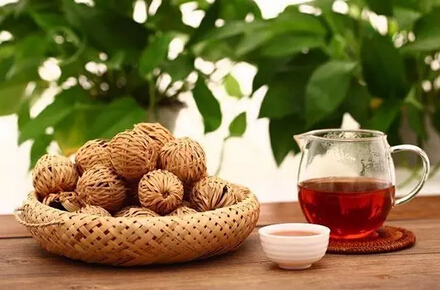
Brew Tea Correctly
▼
For green tea, use lower water temperature and control the tea-to-water ratio to avoid making it too strong. Light tea is better for health. When brewing green tea, the water temperature should be around 80°C, steep for 2-3 minutes, and use 3 grams of tea for 150 ml of water for the ideal strength.
Yellow tea and white tea are brewed similarly to green tea.
Black tea should be brewed with boiling water and steeped longer—about 5 minutes—to help release its flavonoids, enhancing both aroma and health benefits.
Oolong tea also prefers boiling water and requires more tea leaves. For example, in a purple clay teapot, use half tea and half water, and it can be brewed 5-6 times.
Pu-erh and dark tea need rinsing. Before the first brew, soak the tea in boiling water for 10 seconds, discard the water, and then brew properly. This removes impurities and improves the tea’s flavor.
Three Cups of Tea a Day Are Ideal
▼
The first cup is morning tea, best consumed after breakfast between 9-10 AM. It helps refresh the mind, detoxify, and combat fatigue. Flower tea is ideal for morning tea.
The second cup is afternoon tea, best consumed between 1-3 PM after lunch or a nap. The tea can be slightly stronger. Green tea, with its antioxidant, free-radical-scavenging, and antiviral properties, is most suitable.
The third cup is evening tea, best consumed between 6-7 PM after dinner. Black tea aids digestion and lowers blood lipids, making it the best choice for evening tea.
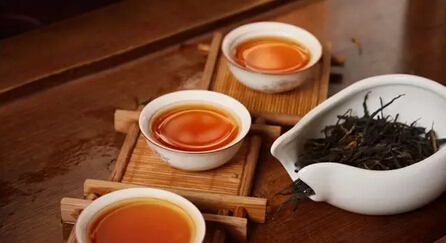
Don’t Drink Tea on an Empty Stomach
▼
Drinking tea on an empty stomach dilutes stomach acid and inhibits gastric secretion, hindering digestion. It may also cause palpitations, headaches, stomach discomfort, dizziness, or irritability—known as 'tea drunkenness'—and interfere with protein absorption, leading to gastritis. If 'tea drunkenness' occurs, eating candy or drinking sugar water can help alleviate symptoms.
Avoid Drinking Large Amounts of Tea Before or After Meals
▼
Many people habitually drink tea immediately after meals, but it’s best to avoid tea 20 minutes before or after eating. Tea dilutes stomach acid, affecting digestion, and the oxalic acid in tea reacts with iron and protein in food, reducing their absorption.
Don’t Drink Tea Within 2 Hours of Bedtime
▼
Avoid drinking tea within 2 hours of bedtime, as it can stimulate the mind, disrupt sleep, or cause insomnia—especially freshly harvested green tea, which is highly stimulating.
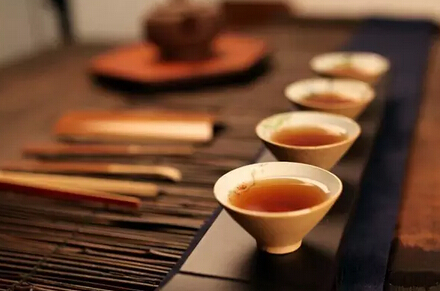
Don’t Drink Tea That Doesn’t Suit You
▼
For example, while personal preferences matter, those with stomach issues should generally avoid green tea. From a traditional Chinese medicine perspective, green tea tends to produce cold energy due to its unoxidized tea polyphenols, which are more stimulating. Black tea, with partially oxidized tea polyphenols, is gentler on the stomach and warming. Thus, people with stomach problems are better off choosing black tea. Some prefer strong tea, but most should avoid overly concentrated brews.
Children Should Avoid Strong Tea
▼
Strong tea contains excessive tea polyphenols, which can react with dietary iron, hindering absorption and potentially causing iron-deficiency anemia in children. Children can drink mild tea in moderation.
Pregnant Women Should Avoid Tea
▼
Pregnant women should minimize tea consumption, especially strong tea. Tea contains high levels of tea polyphenols and caffeine, which can negatively affect fetal development. It’s best for pregnant women to drink little or no tea.
Limit Consumption for Those with High Uric Acid
▼
People with high uric acid levels, such as gout sufferers, should limit tea intake. The tannins in tea compete with uric acid for excretion, affecting its removal. Thus, gout patients should avoid strong tea.
Don’t Take Medicine with Tea
▼
The tannins in tea can react chemically with many medications, reducing or nullifying their effects. Many traditional Chinese medicines, such as ginseng, coptis, and phellodendron, should not be taken with tea to avoid diminishing efficacy. When unsure, it’s safest to avoid using tea to take any medication.
Don’t Drink Scalding Tea
▼
Overly hot tea irritates the throat, esophagus, and stomach. Long-term consumption of scalding tea can damage the stomach lining and lead to organ issues. The ideal tea temperature is below 70°C, with around 50°C being optimal.
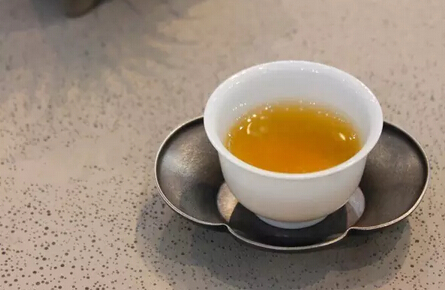
Don’t Drink Cold Tea for a Refreshing Experience
▼
Cold tea loses its aroma and develops a bitter taste. Tea left for over an hour oxidizes, and drinking cold tea can cause stagnation and cold in the body, leading to coughing or phlegm buildup.
Don’t Drink Overbrewed Tea
▼
Typically, the first brew extracts about 55% of the tea’s soluble compounds, the second 30%, the third 10%, and the fourth only 1%-3%. For vitamins and amino acids, 80% are extracted in the first brew, over 95% by the second, and nearly all by the third. By the fourth brew, the nutritional value is minimal. Additionally, prolonged steeping can release harmful substances like heavy metals, which are bad for the kidneys.
Don’t Drink Overnight Tea
▼
Especially if it has developed an off taste, overnight tea likely harbors bacteria. Tea contains proteins that mostly don’t dissolve in hot water and remain in the leaves. At high temperatures, these proteins can spoil, and overnight, enzymes and bacteria grow. The tannins left in the tea oxidize into irritants that can inflame the stomach. Thus, overnight tea should not be consumed.
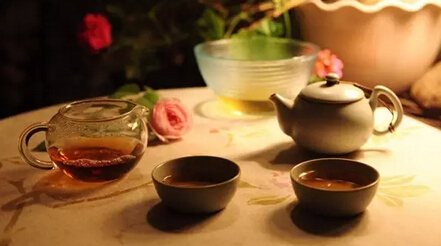
Don’t Drink Tea Steeped Too Long
▼
Oversteeping releases excessive caffeine, theophylline, and polyphenols, making the tea too strong. Prolonged steeping also dissipates the aroma and reduces vitamins and amino acids, lowering its nutritional value.
Don’t Drink Overly Strong Tea
▼
Strong tea contains high levels of caffeine and other stimulants, which can harm the stomach and kidneys, cause overexcitement, and lead to insomnia or headaches. People with hypertension, stomach issues, anemia, or heart conditions should especially avoid strong tea.
Don’t Drink Spoiled Tea
▼
Tea easily absorbs moisture and molds. Some may hesitate to discard moldy tea out of frugality, but spoiled tea contains harmful substances and bacteria and must not be consumed. Even high-quality tea, if left too long after brewing, can oxidize and grow microbes, making it unsafe.
Elderly Should Avoid Raw Tea
▼
Raw tea refers to green tea that is dried directly after withering without rolling. It retains a strong grassy flavor and high levels of low-boiling-point compounds, which can irritate the stomach lining, causing pain in the elderly and discomfort in younger drinkers. If you accidentally buy raw tea, don’t brew it directly. Instead, gently pan-fry it over low heat to remove the grassy taste and develop a mild chestnut aroma before drinking.
Choosing and drinking the right tea not only brings enjoyment but also achieves the goal of health preservation.